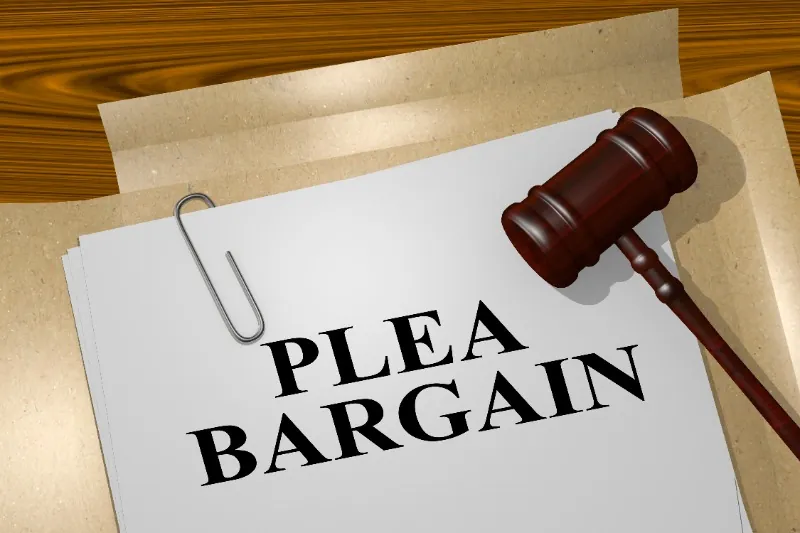
When facing legal charges in Nebraska, you might consider a plea bargain—a deal where you agree to plead guilty to a lesser charge in exchange for a more lenient sentence or the dismissal of other charges.
While this might seem straightforward, it’s essential to recognize that plea bargains come with pros and cons. For example, a plea bargain can significantly reduce your legal expenses and the uncertainty of a trial.
However, it may also lead to a criminal record or unforeseen consequences affecting your future employment and personal life.
Each case is unique, with its own set of short-term impacts and long-term ramifications. Making decisions based solely on prosecutors, friends, or family advice can be risky. While possibly well-intentioned, these individuals are not equipped to fully understand the legal nuances or potential effects on your life.
To navigate the pros and cons of plea bargaining, you should consult with an attorney skilled and experienced in Nebraska law. An attorney can provide tailored advice that considers all aspects of your situation, helping you make an informed decision that protects your rights and future.
Pros And Cons of Plea Bargaining
Navigating a plea bargain requires careful consideration, as it presents opportunities and risks.
Having a Nebraska attorney by your side is crucial because they know local laws, court procedures, and negotiation nuances specific to Nebraska’s legal system. This familiarity ensures that you navigate the plea bargaining process with someone who thoroughly understands the unique aspects of your case and how they interact with Nebraska’s legal environment.
What Happens When You Accept a Plea Bargain?
When you accept a plea bargain in Nebraska, you agree to plead guilty to a lesser charge in exchange for a reduced sentence or dropping other charges. This decision leads to several immediate actions: the court will schedule a plea hearing where you formally enter your guilty plea, and you must record that you understand the rights you are waiving, including the right to a trial. Once accepted, the judge will sentence you, often at a later date, based on the terms of the plea agreement.
Accepting a plea bargain might be wise in cases where the evidence against you is overwhelming, making a conviction at trial almost certain. It can also be beneficial if the plea deal significantly reduces potential penalties or helps you avoid risks associated with your case being publicly tried, protecting personal and professional reputations.
What Happens If You Turn Down a Plea Bargain?
Conversely, if you turn down a plea bargain, you maintain your right to a trial where you can contest the charges against you. This decision allows you to fight for a complete acquittal, which, if successful, means no criminal conviction will appear on your record.
However, refusing a plea offer also carries the risk of receiving a harsher sentence if convicted at trial compared to what was offered in the plea. In Nebraska, it is crucial to consider the strength of the prosecution’s case against you and the potential implications of a conviction when deciding to reject a plea offer.
Deciding whether to accept or reject a plea bargain is a critical choice that requires careful thought and a clear understanding of your legal situation. This decision should be made with the guidance of a knowledgeable attorney who can thoroughly analyze your case, discuss potential outcomes, and navigate the complexities of Nebraska law.
Who Decides Whether a Plea Deal Is Available?
In Nebraska criminal cases, the prosecutor primarily decides whether a plea bargain is available. The prosecutor reviews the evidence, considers the severity of the crime, and assesses the likelihood of securing a conviction at trial. Based on these factors, the prosecutor may offer a plea bargain to the accused person.
While the prosecutor initiates the plea offer, the accused, guided by their attorney, decides whether to accept or reject it. The defense attorney plays a crucial role in this process, analyzing the strength of the prosecutor’s case, the fairness of the offer, and the client’s circumstances.
They negotiate with the prosecutor to adjust the terms if necessary, striving to achieve the most favorable outcome. Once a plea agreement is reached, it must be approved by a judge. The judge ensures that the plea is entered voluntarily and that there is a factual basis for the plea.
Are You Interested in Learning More About Plea Bargains?
If you were recently arrested and charged with a crime, and want to learn more about the plea bargain process, reach out to the dedicated lawyers at Petersen Criminal Defense. At Petersen Criminal Defense, our dedicated team of attorneys has handled more than 8,000 criminal cases, many of which ended in favorable plea bargains. To learn more about the services we provide and to schedule a free consultation today, give us a call or connect with us through our secure online contact form.


